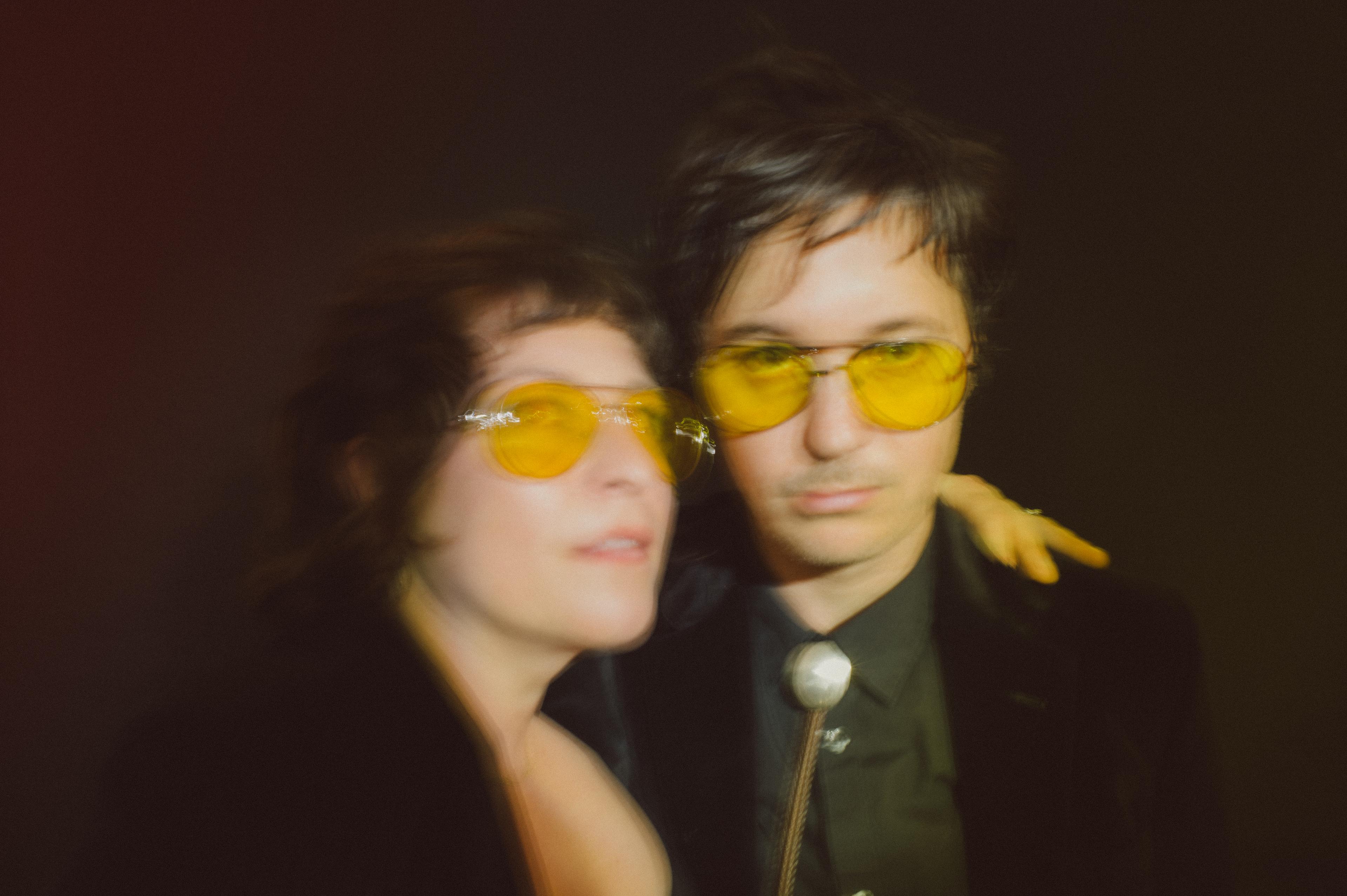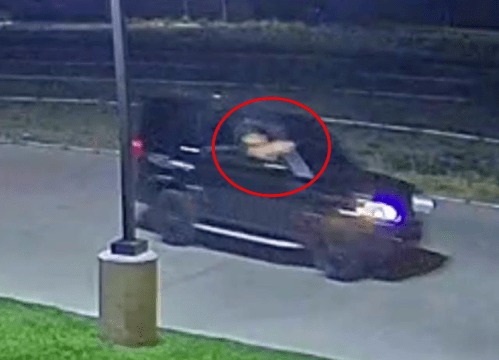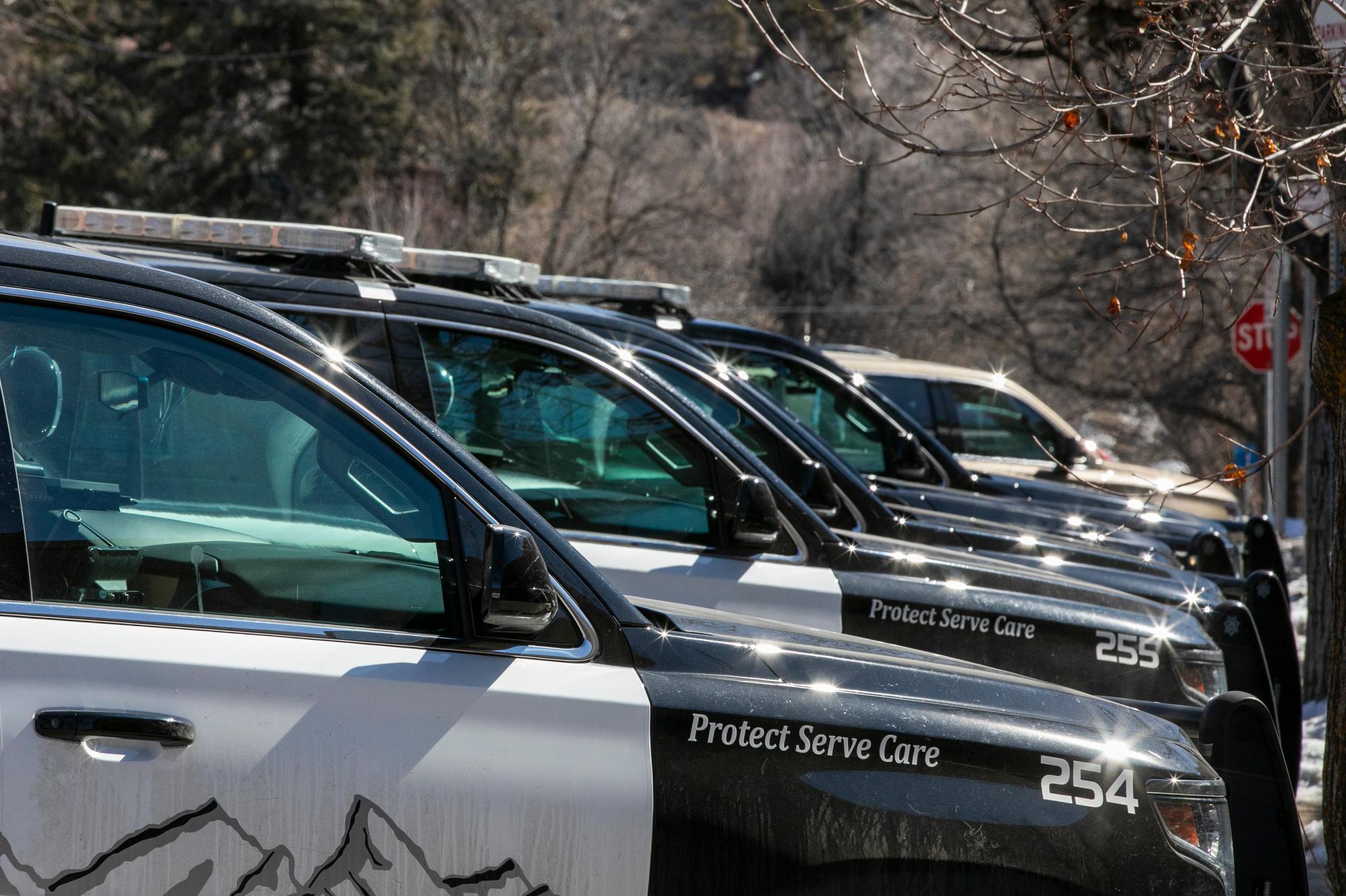
Comedian and actor Bill Cosby was convicted on three counts of sexual assault last week, and Heidi Thomas of Castle Rock was one of the witnesses who helped jurors in a Pennsylvania court reach that verdict.
In court, Thomas testified that in 1984, when she lived in Littleton, she was an aspiring actress and Cosby offered to mentor her:
“The phone rings and there’s Bill Cosby on the other end,” she said on Tuesday. “It’s… this voice you heard on TV and on the comedy stuff is on the other end of my phone. He was very kind and personable. He said he was looking forward to working with my agent. He was looking forward to giving back to the industry that had given him so much.”
Her parents arranged for her to travel to Cosby's house in Reno, Nevada. There, she took a sip of wine, and the next four days were a blur. Now, all these decades later, Cosby awaits his sentencing.
Interview Highlights
Thomas on why didn't file charges at the time:
"It was because I didn't tell anybody. Nobody knew, including my parents, I thought, 'this is actually kind of a cool story.' I don't remember most of the four days I was in Reno. I don't remember coming home. I don't remember the flight. I don't remember being picked up at the airport, I don't remember anything. But what I do remember was that, my mom has a broadcasting background and she was very cautious about this whole thing, but part of Cosby's M.O. is to ingratiate himself with family members. This is, we've now learned, part of his pattern.
So he had called our house and he had spoken with both of my parents and made sure that everybody was very comfortable with this entire situation. And I knew that my mom and dad would be devastated, brokenhearted, if they understood what really happened. Now here's the other part of that answer, really. At the time, classic victim mentality, which I have since learned, is that I wasn't sure, but what I had done something wrong. I had somehow sent the wrong message. I had somehow, so, what am I going to tell my parents?"
On how her parents reacted when they did hear her story:
"Well, it turns out my mom suspected for the last 30 years. Apparently I called her from Reno and I have no recollection of that phone call. ... She remembered it and she made a comment to my husband. "I will never forget that phone call." And my husband pulled the car over and said, "Wait a minute. What phone call?" And from there on, it opened up. I went public in January of 2015 and everything kind of progressed from there."
On what it was like to testify with Cosby just a few feet away:
"I was there to do a job. My biggest focus was, "Oh, please give me clarity. Give me articulation. Help me make sure that my story," which by this time I knew fit a pattern. I didn't know what the pattern was, but that was why I was there. I wanted to make sure the jury heard the truth. I probably was 10 or 15 minutes into my testimony before it occurred to me I didn't even know if he was in the room. So then I looked over at the defense side and oh, there he was. Hello. But then I went back to, this is my job. I gotta do the best job I can to make sure this man is held accountable."
Why she doesn't think her feelings about the verdict are important:
"What's important is what this means in the grand scale of things. What this means for other people who have been victimized already and our daughters and our sons. Hopefully it's setting a template for a new way of dealing with these crimes. Hopefully."
On what changes she hopes to see:
"Clearly the first one is, look at how long it took for all these people to be believed, including people, and this is with somebody who's famous, but there are so many victims out there who are assaulted by family members. And of course their family doesn't want to acknowledge it. Or they're assaulted by somebody they know, often times assaults are happening by somebody the victim knows and no one will either believe them or they can't go forward because somebody somewhere is going to lose a job. Someone's going to get accused. Someone is going to, it's going to be bad for the reputation. So someone will somehow lose a job and therefore they can't go public."
Full Transcript
Ryan Warner: This is Colorado Matters from CPR News. I'm Ryan Warner. Bill Cosby awaits his sentence. He could get up to 30 years in prison for drugging and then sexually assaulting a woman in 2004. When he was found guilty last week, it was called the first conviction of the #MeToo movement. Well, a Colorado woman played a pivotal role in the trial. Heidi Thomas lives in Castle Rock and had her own encounter with Cosby more than 30 years ago. She's one of close to 60 women to accuse him. Heidi, welcome to the program. Heidi Thomas: Thank you very much. RW: I understand that since the verdict, a great many people have asked for your reaction. But your response is to insist that how you feel isn't important. Why not? HT: I think there are people listening to this that don't know me and that's not important how I responded. What's important is what this means in the grand scale of things. What this means for other people who have been victimized already and our daughters and our sons. Hopefully it's setting a template for a new way of dealing with these crimes. Hopefully. RW: What changes do you hope to see then, palpably? HT: Clearly the first one is, look at how long it took for all these people to be believed, including people, and this is with somebody who's famous, but there are so many victims out there who are assaulted by family members. And of course their family doesn't want to acknowledge it. Or they're assaulted by somebody they know, often times assaults are happening by somebody the victim knows and no one will either believe them or they can't go forward because somebody somewhere is going to lose a job. Someone's going to get accused. Someone is going to, it's going to be bad for the reputation. So someone will somehow lose a job and therefore they can't go public. RW: You never thought you'd be able to tell your story in a court of law. Is that right? HT: Oh, absolutely not. That was so long ago, first of all, past the statute of limitations. And again, the meta Goliath, on that kind of an assault. And now part of what's been miraculous, in my opinion, is the timing of the Me Too movement. It did make a difference. Anybody who thinks otherwise is absolutely in the fog. RW: It made a difference in what, exactly? Because the jurors, or a juror who's been interviewed has said Me Too didn't really enter the jury room, the deliberation. Are you saying it entered the broader picture? HT: Absolutely. I'm sure they didn't talk about it in the jury room. It was not part of the evidence and their job was to stick to the evidence so God love them, they did. But the entire societal awareness has been awakened, awareness and awakened? Yes. In the last several months that this is not something that happens just to other people. I've been saying for months that this Cosby thing was the tip of the iceberg and now the Me Too movement has proven that correct. RW: I want to give just a little background on your encounter with Cosby. In 1984, you were an aspiring actress who had the opportunity to meet with him in Reno, Nevada. You say you were taken to a private home and given some wine and later drugged and then assaulted. That was his pattern. You would later say that you were drowsy for four days afterwards. Dozens of women told similar stories, accusing Cosby. But you never filed charges against him. And as you said, the statute of limitations in your case ran out. Why didn't you file charges back then? Is it because he was in show business, a Goliath? HT: No, it was because I didn't tell anybody. Nobody knew, including my parents, I thought. This is actually kind of a cool story. I don't remember most of the four days I was in Reno. I don't remember coming home. I don't remember the flight. I don't remember being picked up at the airport, I don't remember anything. But what I do remember was that, my mom has a broadcasting background and she was very cautious about this whole thing, but part of Cosby's M.O. is to ingratiate himself with family members. This is, we've now learned, part of his pattern. So he had called our house and he had spoken with both of my parents and made sure that everybody was very comfortable with this entire situation. And I knew that my mom and dad would be devastated, brokenhearted, if they understood what really happened. Now here's the other part of that answer, really. At the time, classic victim mentality, which I have since learned, is that I wasn't sure, but what I had done something wrong. I had somehow sent the wrong message. I had somehow, so, what am I going to tell my parents? Well, you know, I think we had some intimate moments and I'm not quite sure how that happened. But I mean, wow. RW: So part of the reason you didn't tell your parents is you thought they would feel so responsible, perhaps for what had happened to you. HT: Oh, absolutely. Absolutely. So if my folks don't know, there goes any idea of pressing charges. Not going to happen. RW: So, maybe folks wonder, "Well, if statutes of limitations had passed, how is it that you were able to testify in this more recent trial?" And the answer is you were called as a prior bad act witness to testify. HT: Correct. RW: I think the first of five women? HT: Correct. I was the first. And obviously that means my story had to be told. So, when the women started adding up back in the fall of 2014 and Hannibal Buress made a comment in his stand up comedy routine, which we all find rather ironic. That five decades of women had been making noise and probably getting, I don't know, paid off, but certainly hushed and not believed. And called gold diggers and much worse. And then it takes a young, black, comedian, male, to say one comment and all of a sudden it's maybe believable. RW: He made a reference to Cosby being a rapist. HT: Absolutely, in his stand up and that just caught everybody off guard. But all of a sudden now, all of these comments were a little bit credible. And the women started coming forward. Of course they were called horrific things. I finally decided, I just want them to know there's somebody out here who believes them, who knows they're telling the truth. But I still didn't want to go public with my poor parents, who are now in their 80s. And this was just two years, three years ago. RW: How have your parents reacted to your- HT: Well, it turns out my mom suspected for the last 30 years. Apparently I called her from Reno and I have no recollection of that phone call. RW: In that fog, in that haze. HT: Sometime in that haze. She remembered it and she made a comment to my husband. "I will never forget that phone call." And my husband pulled the car over and said, "Wait a minute. What phone call?" And from there on, it opened up. I went public in January of 2015 and everything kind of progressed from there. When this second case came together- RW: There had been a mistrial. HT: There had been a mistrial last year and when the second case came together, the district attorney, as they say out there, for the Commonwealth of Pennsylvania, determined that he really wanted to see if he could show a pattern here. And so he was given parameters by the judge and I fit the parameters. He came out to Colorado with a couple of detectives. Took my statement. Talked to my husband. Got him as a corroborating witness if we needed it. Then he determined, based on his parameters, who was going to testify. RW: You're listening to Colorado Matters. I'm Ryan Warner and we're speaking with Heidi Thomas of Castle Rock, who indeed did testify in the most recent trial of Bill Cosby. He awaits sentencing, could face up to 30 years in prison. Which might mean dying in prison for him. How was it to testify and to have him just feet away? HT: I honestly didn't even think about it. RW: Wow. HT: I was there to do a job. My biggest focus was, "Oh, please give me clarity. Give me articulation. Help me make sure that my story," which by this time I knew fit a pattern. I didn't know what the pattern was, but that was why I was there. I wanted to make sure the jury heard the truth. I probably was 10 or 15 minutes into my testimony before it occurred to me I didn't even know if he was in the room. So then I looked over at the defense side and oh, there he was. Hello. But then I went back to, this is my job. I gotta do the best job I can to make sure this man is held accountable. RW: How was it to testify about those four days that were so foggy for you? HT: Well that obviously was kind of a funky thing. It's almost a perfect crime he's committed. He's a brilliant man. He is so intelligent. And part of what all of the “Cosby Women” have been concerned about is that this might become a template. Because if you can't remember what happened, how are you going to testify in court? So the only thing I really had to go on was, I had kept pictures, airline tickets- RW: You had kept those things? HT: I had because back- RW: That required some foresight. HT: No, it required a family who does scrapbooks. RW: I see, a family that- HT: That's all it was. RW: ... doesn't throw anything away. HT: No, yeah, right. RW: You know, Bill Cosby was one of the world's favorite performers. America's dad to millions of people. I mean it was impossible not to see him somewhere on the sitcom, commercials, talkshows. HT: Yeah. RW: His stardom was part of the reason you agreed to meet with him. You were, again, an aspiring actress. What was it like for you after the encounter to have had such a very different sense of him, than the rest of the world? HT: Obviously disappointing and I think that's a word used by many of us. And again, if we bring this in to what's happening now, that is a very common feeling with all these public people who are now being accused of these horrible crimes. The two-faced side of it and the fact that you did feel like you knew this person and you trusted this person. They came into your home on radio or TV or by their work. And you felt like, "Wow, aren't they wonderful. Aren't they successful." And then you find out there's this horrible side. It's disappointing and disillusioning. RW: Are you grateful that the world sees a fuller Bill Cosby now? HT: I'm grateful that there's some reality check that's happened. I'm grateful. I'm very grateful for all of the people who have found their voice, because the more that do, the more that empowers others to do so. RW: Take me back to the stand. How was it to be interacting with the defense. Was that painful? HT: No, not a bit. You know, my husband and I are kind of fans of legal television shows. I had been warned, this is not TV. But in some cases, in some aspects, there were similarities. I was all prepared for the defense attorney to schmooze a little bit and make me feel all comfortable and then kind of ramp it up and get a little more accusatory. That's exactly what happened. So I think I was prepared for it. Quite honestly, yikes, should I say this? I'm going to say this. I was surprised. I did not feel that the defense attorney was very well prepared. I was surprised. I was ready to go to battle on some things that she never even mentioned. RW: Brought up. HT: Yeah. It was, she had lots of big pauses. She'd look at me and she'd look at her notes. I just, yeah, she didn't look very organized to me. So I was pleasantly surprised. And obviously that was empowering too. RW: Do you have any sense that Bill Cosby is remorseful? HT: No. RW: I’ll say I just read an article in which he compared himself to Nelson Mandela. HT: Oh yeah. RW: Headed to Robben Island. HT: And his publicists have compared him to a tragic case of a young black man who was lynched. Absolutely, he was not guilty, but he was lynched for flirting with a white woman back in the ‘50s and his publicists have complained and compared this to that. No, he has no remorse. That I know from the District Attorney. He does not understand that what he has done is wrong. Which is why, although I am not a mental health expert in any, I'm a music teacher for heaven's sakes. But, something is broken. He doesn't get it. He really doesn't. RW: You could still file a civil suit, couldn't you? In other words- HT: I don't know. I know that there are- RW: It's not something you've considered? HT: No. No. To me, and I'm not disparaging any of the women who have cases against him. But to me, that plays right into the whole, oh, they're out for money. RW: Interesting. HT: So, no. I will never press any kind of charges. RW: Thank you for being with us. HT: Thank you for allowing me to speak. RW: My goodness, yes. Heidi Thomas of Castle Rock was the first woman to testify about her experience with Bill Cosby in the comedian's recent trial for aggravated indecent assault. Cosby was found guilty last week, faces 30 years in prison. When we come back, it was supposed to solve RTD's problems, but a partnership with a private firm seems to be creating problems instead. This is Colorado Matters from CPR News. |








